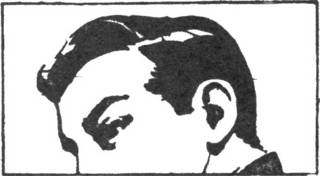A glossary of
street cricket terms from Wikipedia. This one's done the rounds as one of those annoying forwarded emails, but it's worth a read nevertheless. How else would you learn the meaning of this mysterious battle-cry?
Upeeeet (Up-it) Etymology partly English - When the batsman, usually the sothai hits the ball in the air, it is a common practice for all the fielders to scream Upeeet encouraging the fielder in the closest proximity to the ball to catch it.
Many of the terms listed are here originally from South India, so I'm not familiar with them. For example:
Gaaji Etymology English - Comes from 'Taking guard' - The Indian reference for an 'innings', usually for batting. It is a well known fact that captains of street cricket teams always prefer to bat first irrespective of conditions. A team batting is said to have had its 'gaaji' and a team which did not bat can get their 'gaaji' the next day
'Idea' Mani Etymology English. Mani refers to a common tamil name. - An intelligent player in the team who always comes up with ideas. Sometimes used in derogatory context to refer to someone who always comes up with ideas that won't materialize.
Street cricket always involves a great deal of improvisation. If you don't have the right equipment, or enough players, the rules of the game need to be adapted. That's how you land up with terms like these:
Automatic Wicketkeeper Etymology English - This indicates that a wicketkeeper is assumed to be standing behind the stumps. No person is placed in that position due to lack of fielders. If the batsman knicks the ball and it goes behind the stumps, he is out caught by the automatic wicketkeeper.
Double-side batsman Etymology English - When the total number of players is odd, one player is declared as Double-side batsman. Typically this person keeps the wicket and will not be allowed to bowl. Also known as inter-pinter.
And finally, do follow the links at the bottom of the Wikipedia entry, they'll lead you to some more glossaries.
Poi Bowling The hard-to-please Chennaiite’s description of the stuff dished out by most spin bowlers. Poi means a lie, and this term denotes lack of spin or fictitious spin. A variation is poi bowler. (V Ramnarayan, The romance of TN cricket, ChennaiOnline)
Baby Over A concept truly Indian. It was definitely invented by the strong guys of the team who realized that it was too expensive to allow a Chintu to bowl half-a-dozen balls which could prove fatal to the team. Hence, the Chintus bowled only 3 balls after which a Sameer or Jaspreet took over. No hard feelings. (Arvind Iyer, Iyer-archi's Blog)

